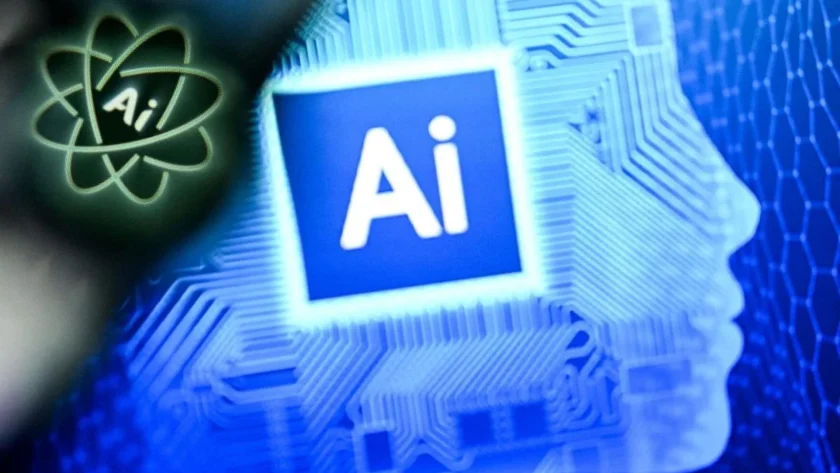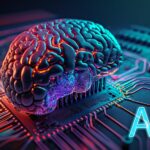Artificial Intelligence (AI) is one of the most transformative and disruptive technologies in modern society. Over the past few decades, AI has expanded rapidly across various industries, including healthcare, education, finance, marketing, and even entertainment. Its capabilities—ranging from automating routine tasks to making complex decisions—hold immense potential to revolutionize how we live and work. However, as AI continues to develop, there are growing concerns about its ethical implications.
Ethical considerations surrounding AI involve a range of issues, such as bias, transparency, accountability, privacy, job displacement, and the potential for misuse. This article delves into the key ethical implications of AI, offering a comprehensive overview of its potential benefits and challenges.
1. The Issue of Bias in AI Algorithms
AI algorithms are designed to analyze large datasets and provide insights based on patterns within the data. However, these algorithms can inadvertently perpetuate biases that exist in the data used to train them. AI systems rely on historical data, which can be biased due to societal prejudices or past discrimination. When these biases are embedded in AI models, they can perpetuate and even amplify existing inequalities in areas such as hiring, lending, criminal justice, and healthcare.
For instance, an AI recruitment tool that analyzes resumes may unknowingly favor male candidates if the training data predominantly consists of resumes from men. Similarly, facial recognition technology has been shown to have higher error rates for people of color, particularly Black individuals, due to a lack of diversity in the datasets used to train these systems.
This raises critical ethical concerns about fairness and the potential for AI systems to reinforce social biases and inequalities.
2. Privacy Concerns and Data Security
The rapid growth of AI is heavily reliant on access to vast amounts of data, particularly personal and sensitive data. As AI systems become more sophisticated, they are capable of processing and analyzing information on a scale previously unimaginable. However, the increasing collection and utilization of personal data raise significant concerns about privacy and data security.
In industries like healthcare, finance, and e-commerce, AI systems are often used to personalize services by analyzing individual user data. This information can include sensitive data such as medical records, financial transactions, and browsing habits. While AI-driven services can improve customer experiences, the collection of this data also raises questions about how that information is stored, who has access to it, and how it is protected from breaches and unauthorized use.
Without robust safeguards in place, AI systems could compromise individuals’ privacy, leaving them vulnerable to data theft, surveillance, and other forms of exploitation.
3. Accountability and Responsibility
As AI systems become more autonomous, determining accountability for their actions becomes increasingly complex. AI algorithms can make decisions without human intervention, but if these decisions result in harm or negative consequences, it becomes unclear who is responsible.
Consider the example of self-driving cars. If an autonomous vehicle causes an accident, who should be held accountable—the manufacturer, the software developers, or the owner of the vehicle? Similarly, in the criminal justice system, AI-driven risk assessment tools are being used to determine bail and sentencing decisions. If these algorithms are flawed or biased, who should be responsible for the harm caused by their inaccurate predictions?
These questions about accountability are central to the ethical implications of AI. As AI systems become more integrated into critical aspects of society, it is essential to establish clear frameworks for responsibility, ensuring that individuals and organizations are held accountable for the outcomes of AI decisions.
4. Job Displacement and Economic Inequality
AI has the potential to significantly alter the job market. Automation, powered by AI, can perform tasks more efficiently and accurately than humans, leading to the displacement of workers in various industries. In manufacturing, for example, robots powered by AI are increasingly taking over routine assembly line tasks, which were once performed by human workers. Similarly, AI systems are being used to automate customer service through chatbots and virtual assistants.
While automation can increase productivity and lower costs, it also raises concerns about the future of work. Many fear that widespread job displacement due to AI could lead to economic inequality and social unrest. As jobs are automated, those without the skills to work alongside or manage AI systems may face difficulty finding employment. This could exacerbate existing wealth disparities and create a divide between individuals who have access to high-paying jobs that require advanced skills and those who are left behind.
To address this challenge, it is essential to ensure that workers are given access to retraining and upskilling opportunities to adapt to the changing job landscape.
5. AI in Military and Warfare
The use of AI in military applications is another ethical concern. AI-powered drones, autonomous weapons systems, and surveillance tools are increasingly being developed for use in warfare. These technologies offer the potential to enhance national security and improve military strategy, but they also introduce serious ethical dilemmas.
One of the primary concerns is the lack of human oversight in the use of autonomous weapons. If AI systems are given the authority to make life-and-death decisions in combat situations, there is a risk that these systems could act in ways that are not in line with international law or human values. Furthermore, the use of AI in warfare could lead to an arms race in autonomous weapons, making the world more dangerous and increasing the likelihood of conflicts.
The ethical challenges posed by AI in military applications require careful consideration of the risks and the development of international agreements and regulations to ensure that AI is used responsibly in warfare.
6. AI and Its Impact on Human Dignity
As AI becomes more integrated into our daily lives, there are concerns about its impact on human dignity. AI systems, particularly those used in surveillance or decision-making processes, could strip individuals of their autonomy and dignity. For example, facial recognition systems used in public spaces raise questions about personal freedom and privacy. In some cases, these technologies can track people’s movements without their knowledge or consent, infringing upon their right to privacy and freedom.
AI systems that make important decisions—such as credit scores, healthcare access, or hiring decisions—may also undermine the dignity of individuals who are subject to algorithmic judgments that they have no ability to challenge. This raises concerns about fairness, transparency, and the respect for individual rights.
7. The Risk of Superintelligence and Loss of Control
One of the more futuristic and controversial ethical concerns surrounding AI is the possibility of the development of superintelligent AI, an AI system that exceeds human intelligence across all domains. If AI systems become more intelligent than humans, there is a risk that they could act in ways that are not aligned with human values and interests. This could lead to scenarios in which AI systems make decisions without regard for human well-being, potentially causing catastrophic consequences.
Although this scenario is still speculative, experts are already considering the ethical implications of creating AI systems that could surpass human intelligence. There are concerns about how to maintain control over such systems and ensure that their goals align with human values.
FAQs on Ethical Implications of AI
- What is the ethical concern with AI bias? AI bias occurs when algorithms are trained on biased data, leading to unfair outcomes that perpetuate existing inequalities in society. This can affect areas like hiring, law enforcement, and healthcare.
- How does AI affect privacy? AI relies heavily on personal data to function, raising concerns about how that data is collected, stored, and used. Without proper safeguards, AI can compromise individual privacy.
- Who is accountable if an AI system causes harm? Accountability for AI-driven actions is a complex issue. Clear legal frameworks must be established to determine who is responsible when AI systems cause harm or make erroneous decisions.
- Can AI cause job displacement? Yes, AI and automation can replace jobs that were previously performed by humans, particularly in sectors like manufacturing, customer service, and transportation.
- What are the ethical issues with AI in military applications? AI-powered weapons and drones could make decisions about life and death without human intervention, raising concerns about accountability and the potential for misuse.
- How does AI impact human dignity? AI systems, especially those used in surveillance or decision-making, can undermine personal autonomy and dignity by making important decisions without individuals’ consent or input.
- What is the risk of superintelligent AI? The development of AI systems that surpass human intelligence could pose existential risks, as these systems might act in ways that are misaligned with human values and interests.
Conclusion
As AI continues to evolve, it presents both opportunities and challenges. The ethical implications of AI are vast and multifaceted, requiring careful consideration and regulation. While AI has the potential to improve lives, solve complex problems, and enhance productivity, it also raises significant concerns about fairness, privacy, accountability, job displacement, and the preservation of human dignity.
As we move forward, it is crucial for governments, organizations, and society as a whole to engage in conversations about the ethical use of AI. By establishing clear guidelines, promoting transparency, and ensuring that AI development is aligned with human values, we can mitigate the risks and maximize the benefits of this transformative technology.
Key Takeaways
- AI can perpetuate biases present in training data, leading to unfair outcomes in areas like hiring and law enforcement.
- Privacy concerns arise from the vast amount of personal data AI systems collect and analyze.
- Accountability for AI decisions, especially in critical applications like self-driving cars or medical diagnostics, is a complex ethical challenge.
- AI can lead to job displacement, requiring efforts to retrain workers and address economic inequality.
- The use of AI in military applications raises concerns about the loss of human oversight in life-and-death decisions.
- The development of superintelligent AI poses risks related to loss of control and misalignment with human values.
- Addressing these ethical issues requires a collaborative approach to establish regulations, ensure transparency, and promote fairness.




